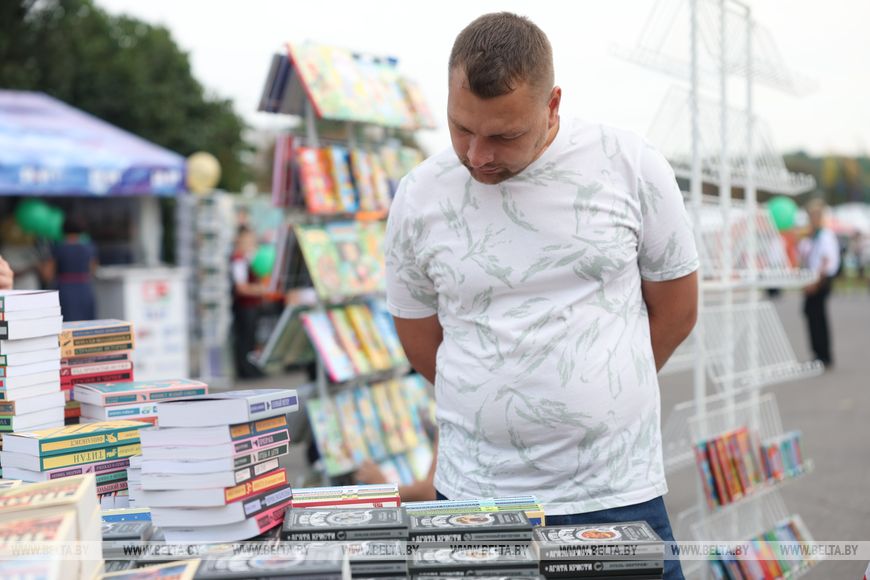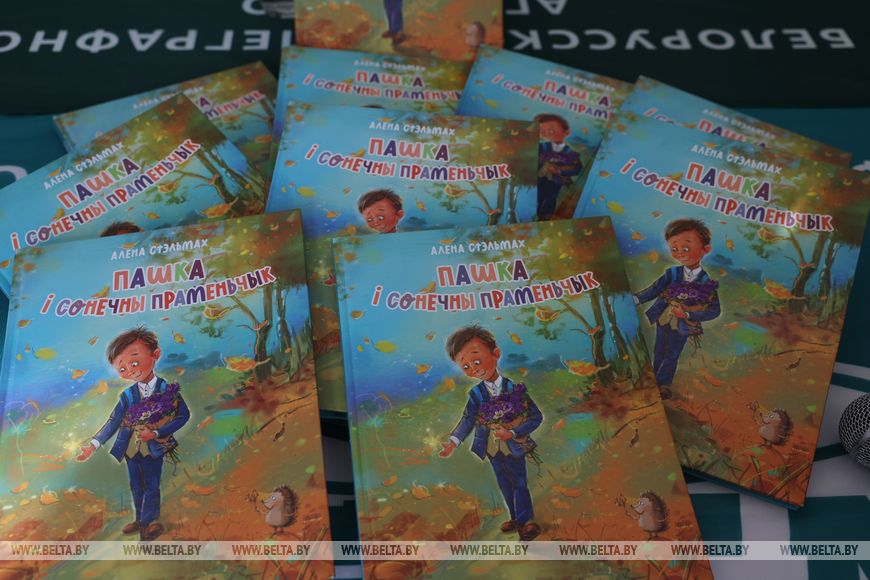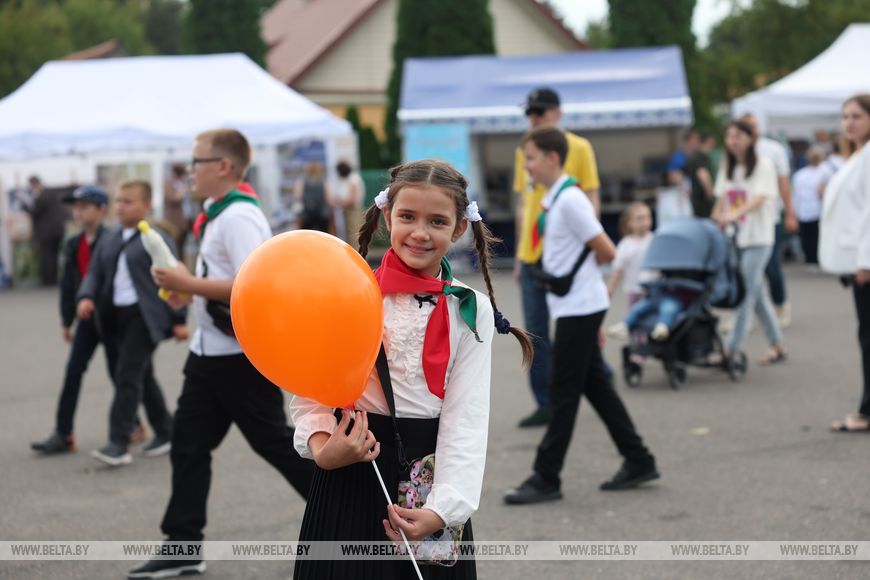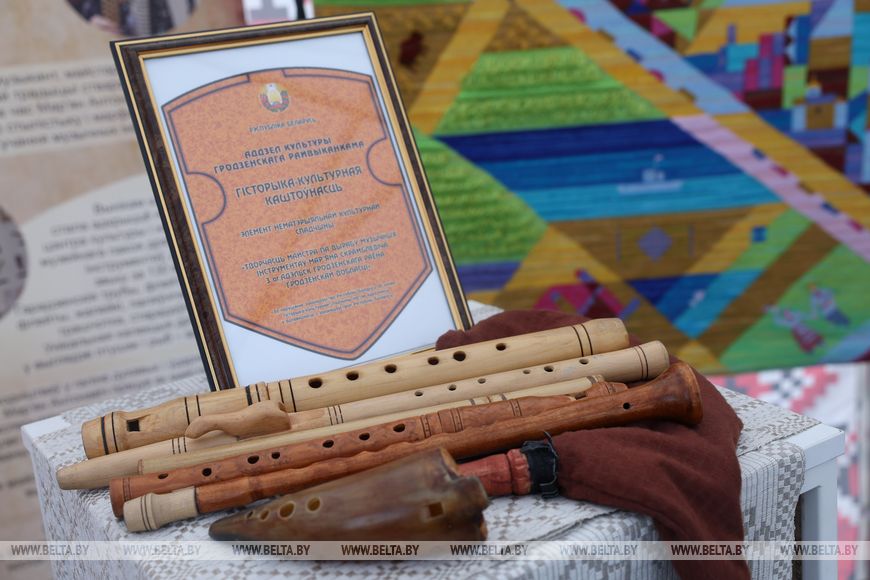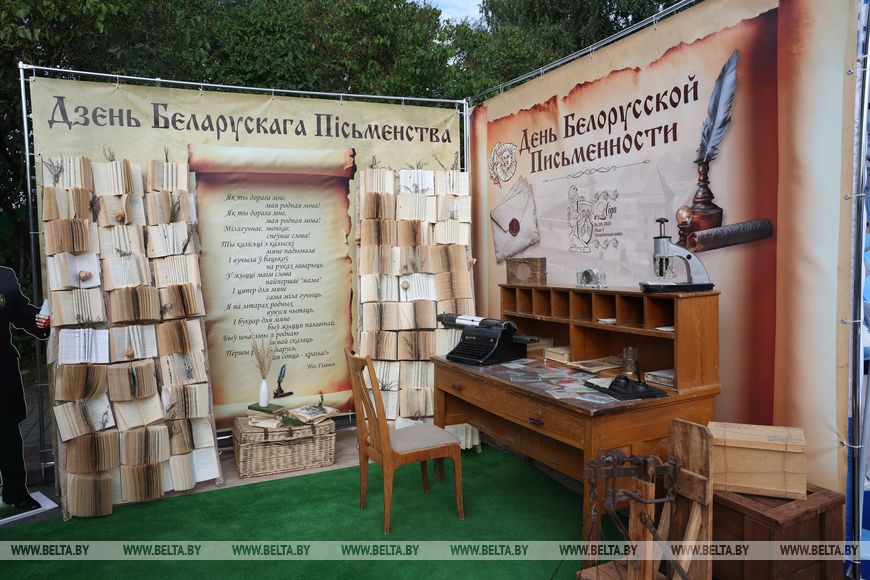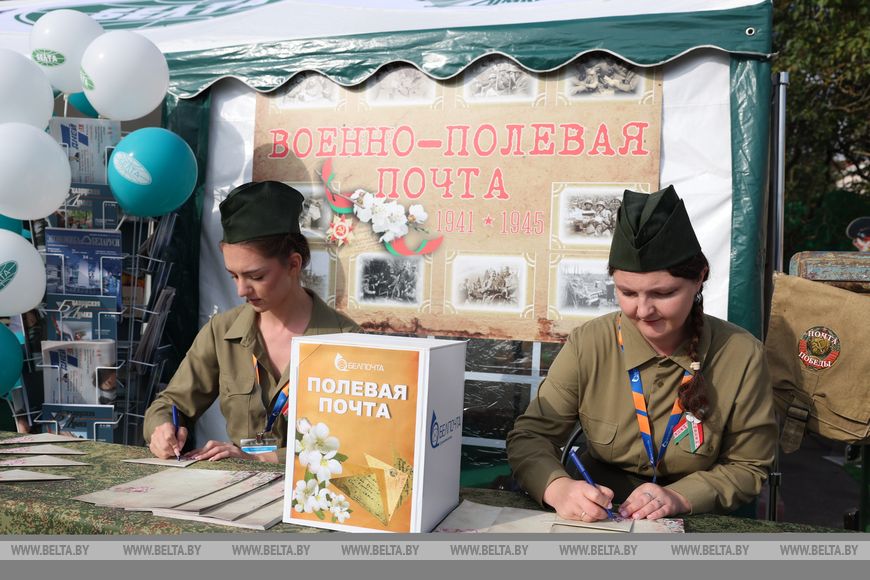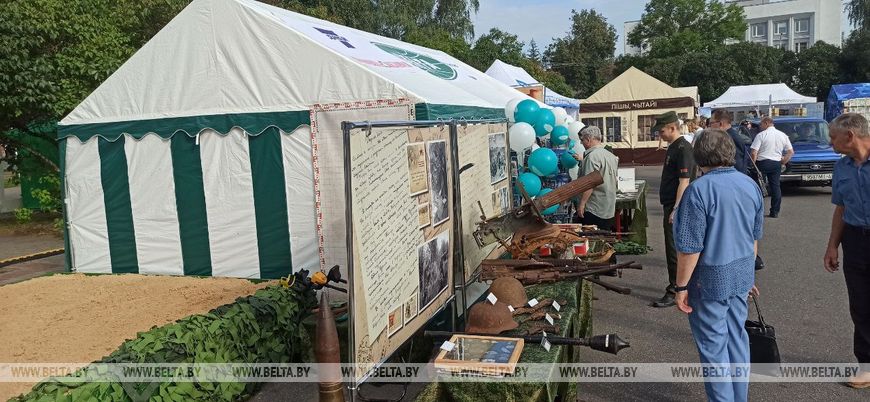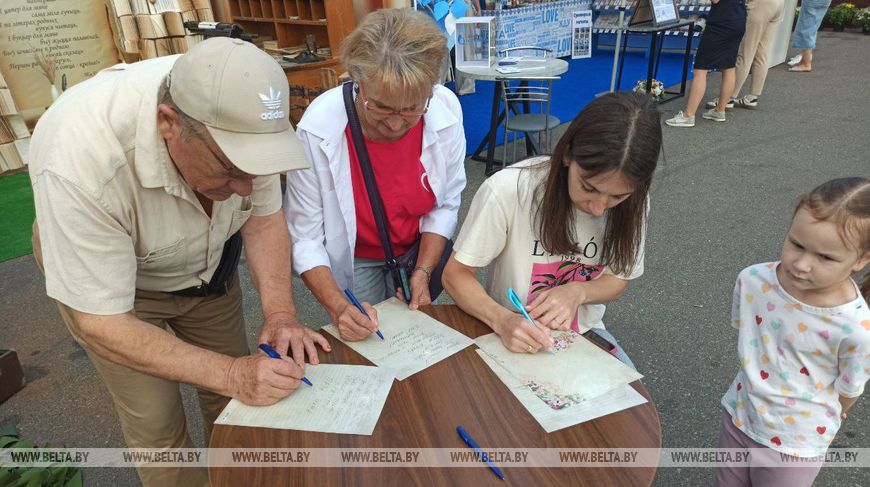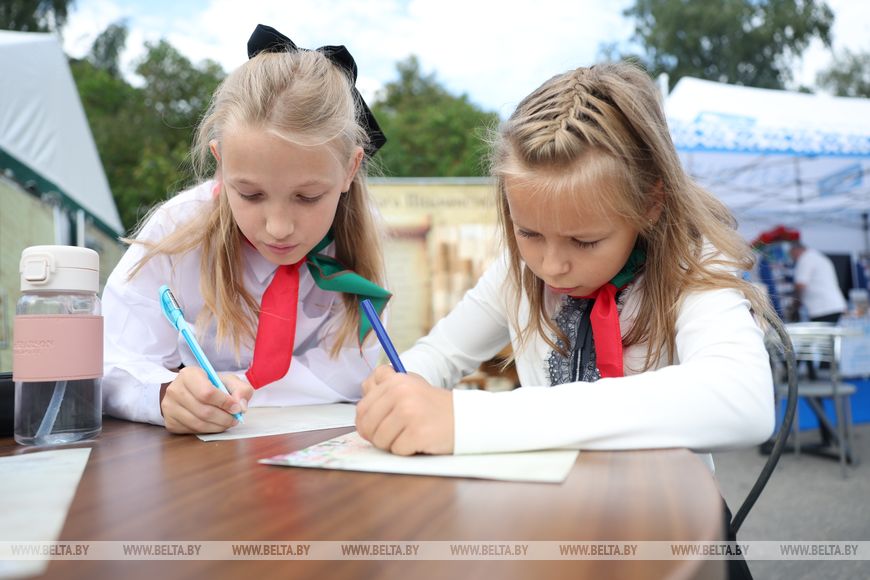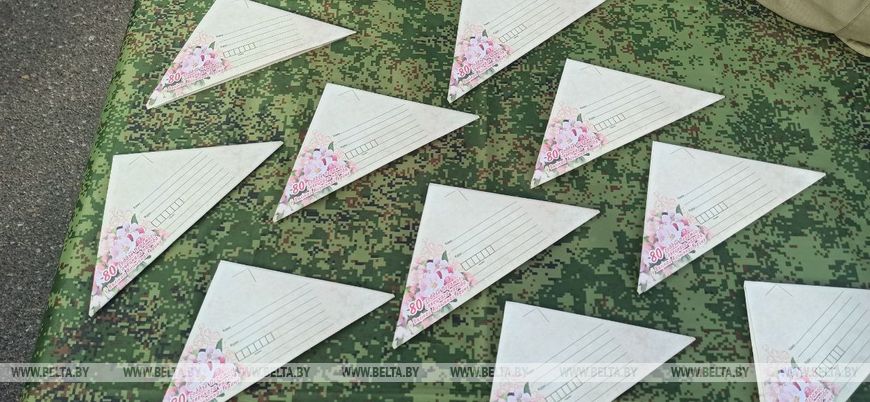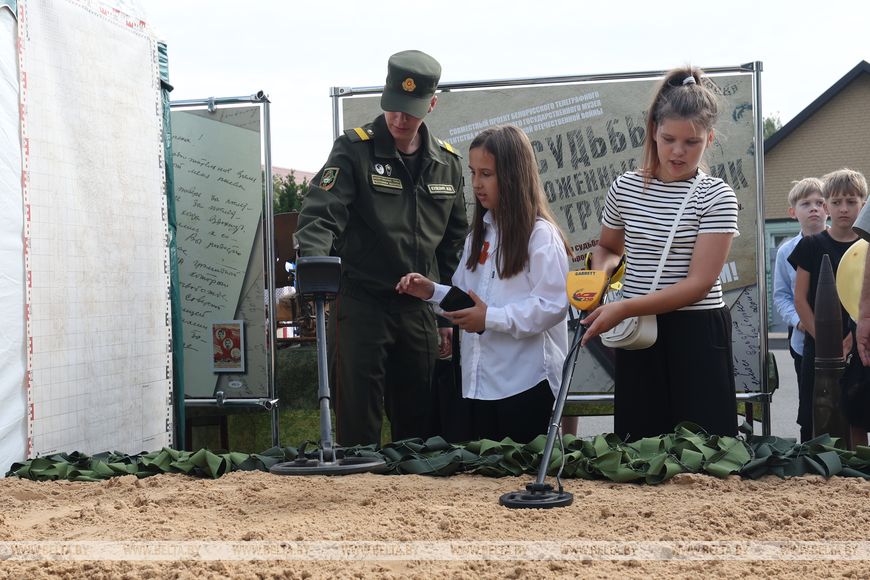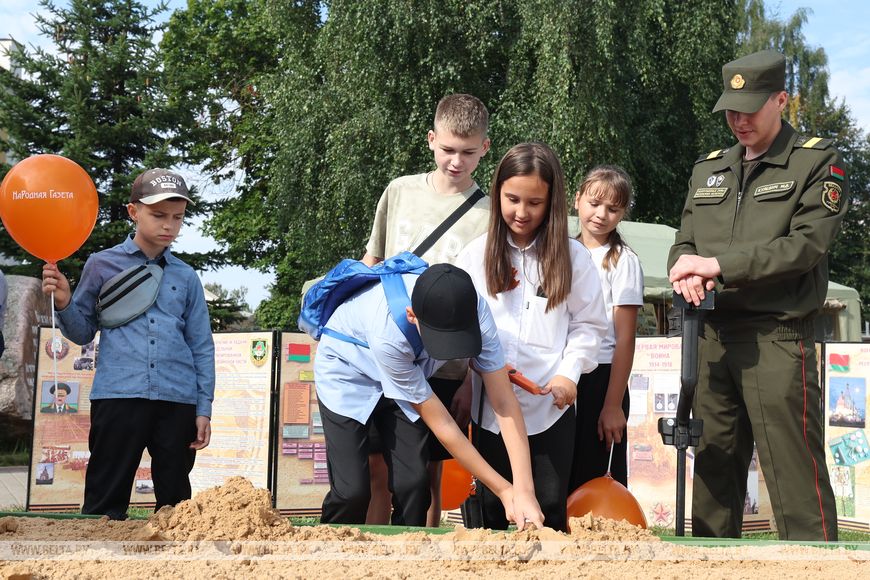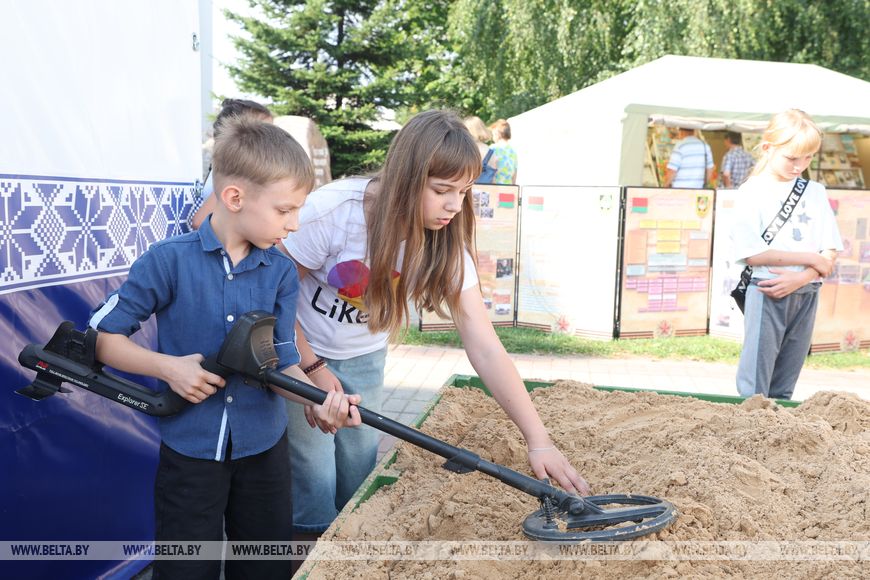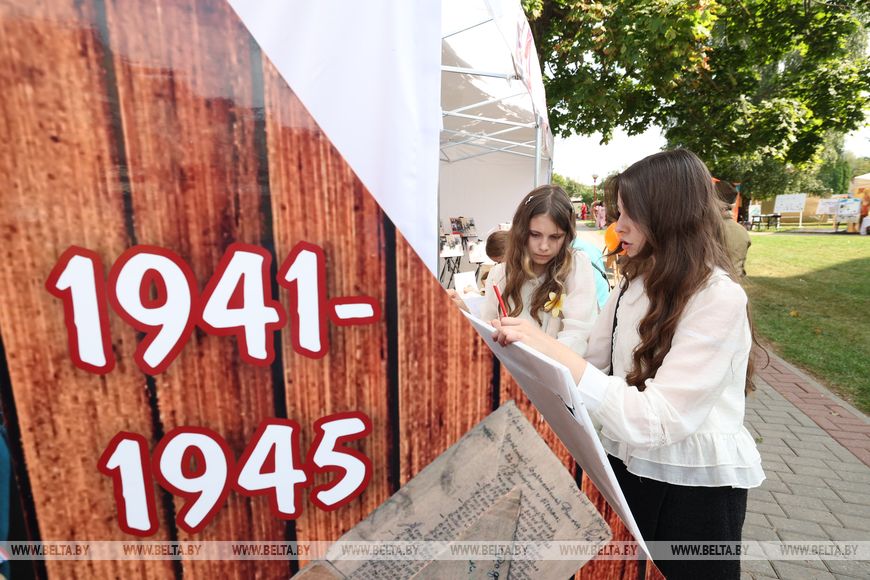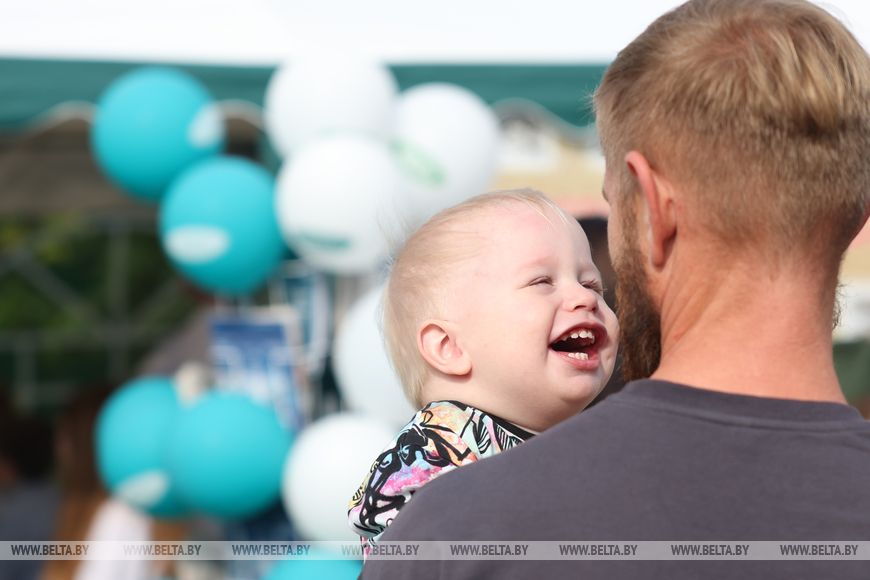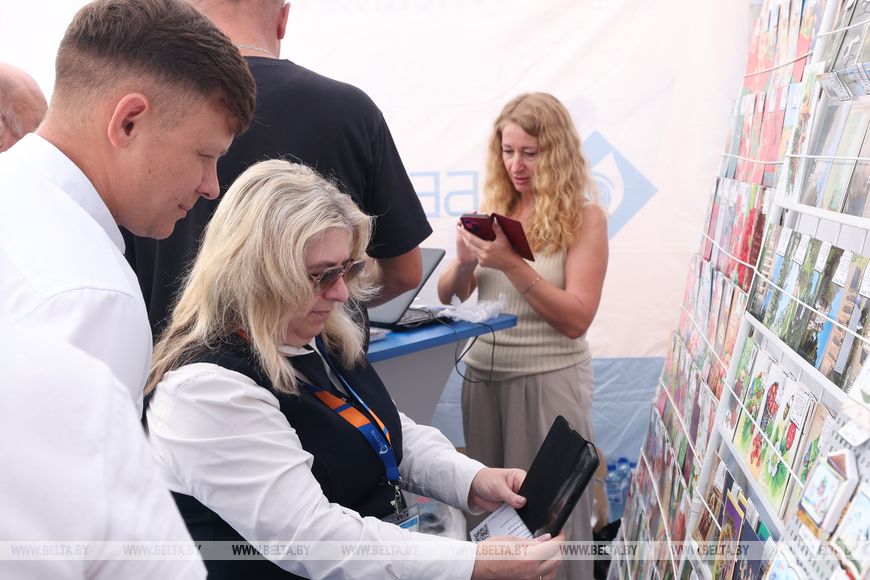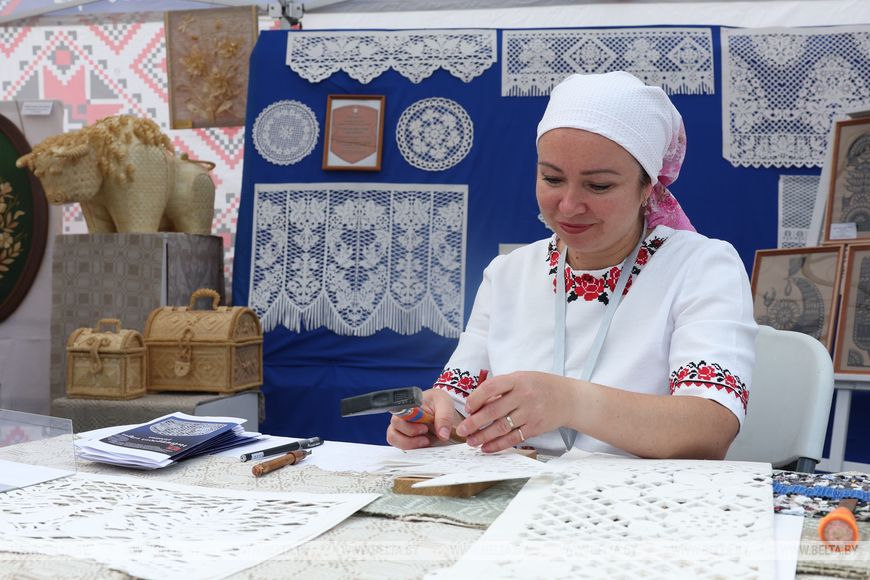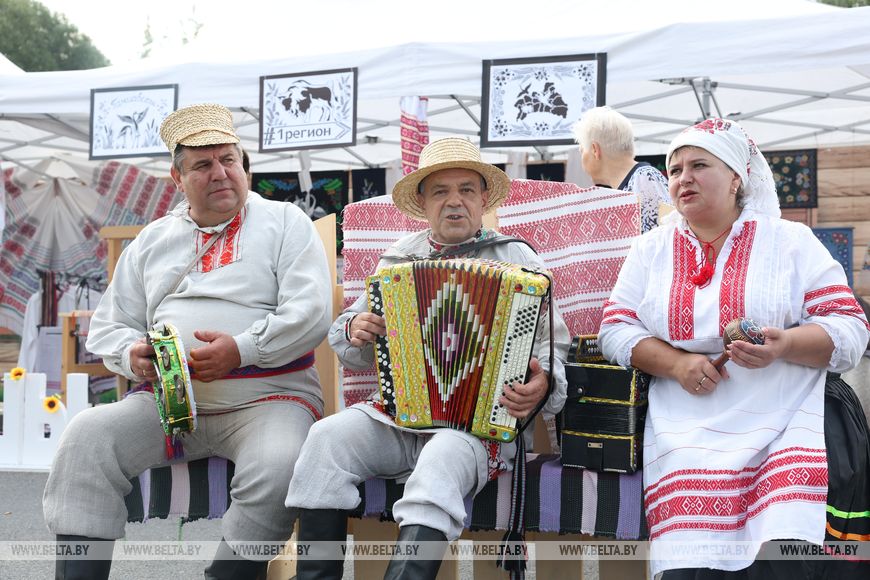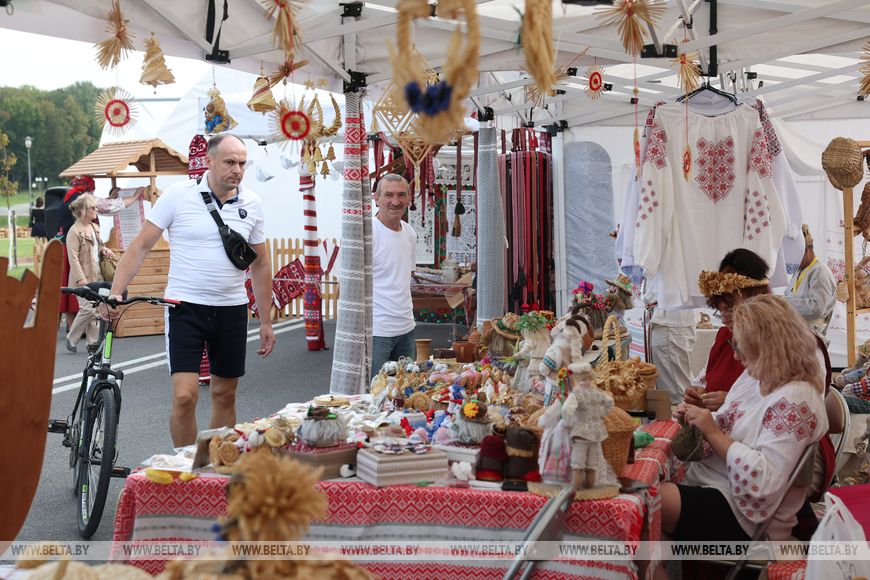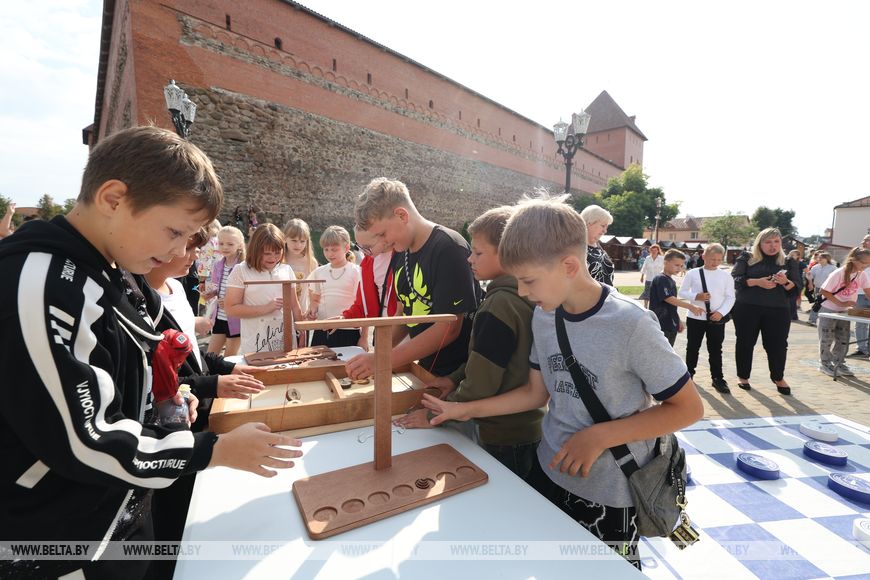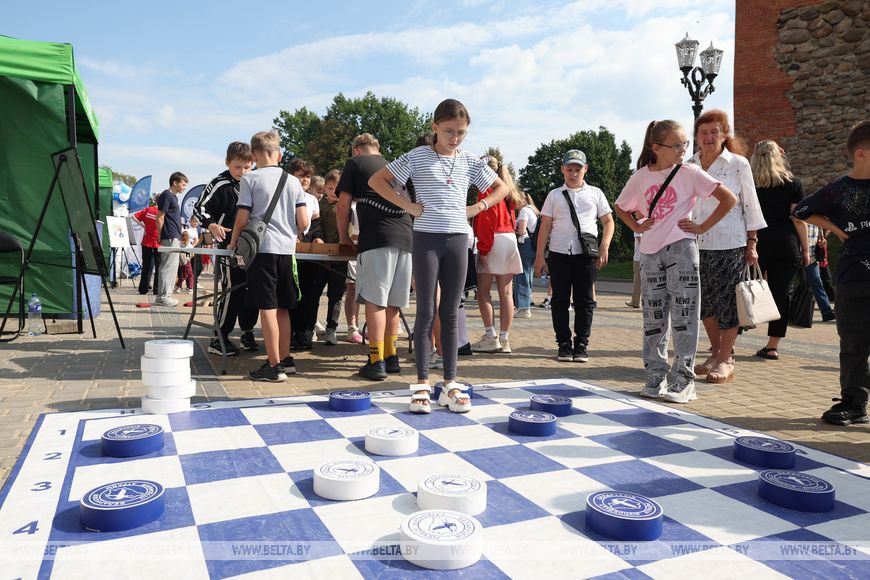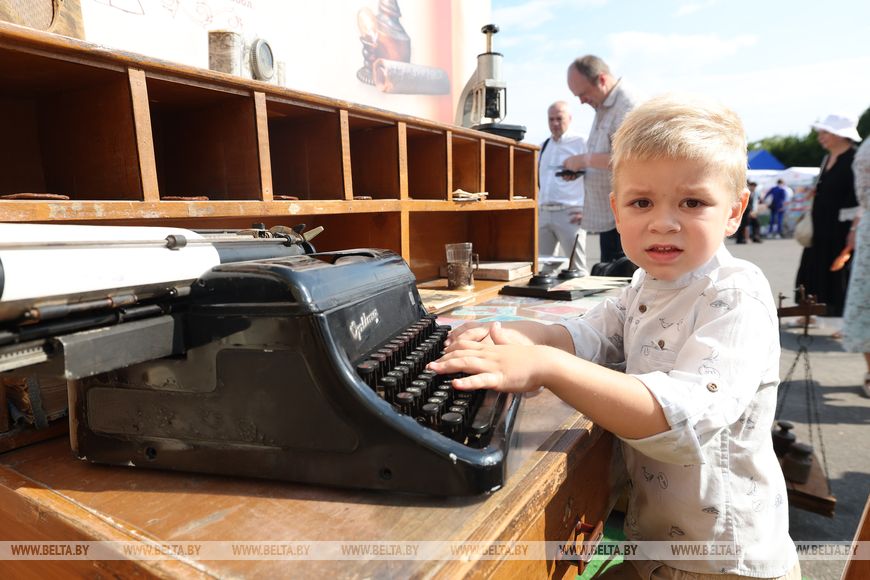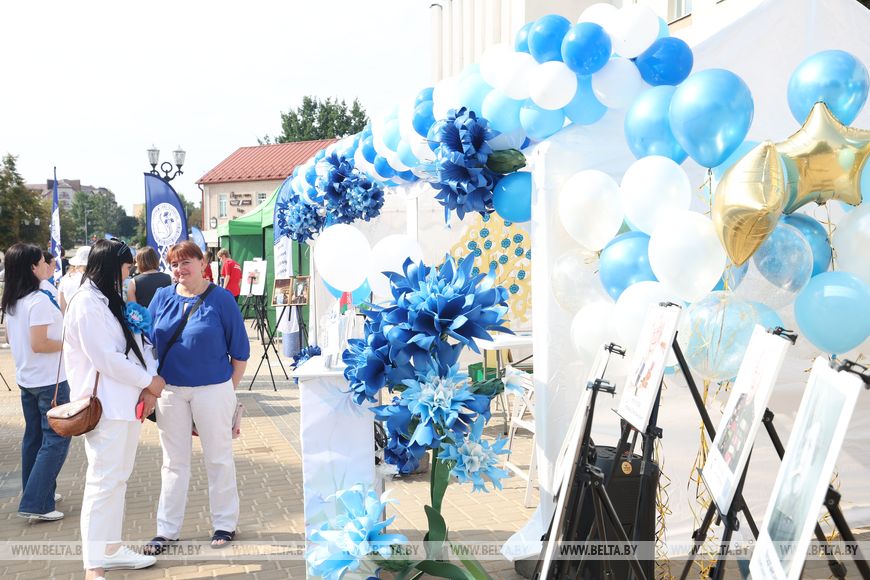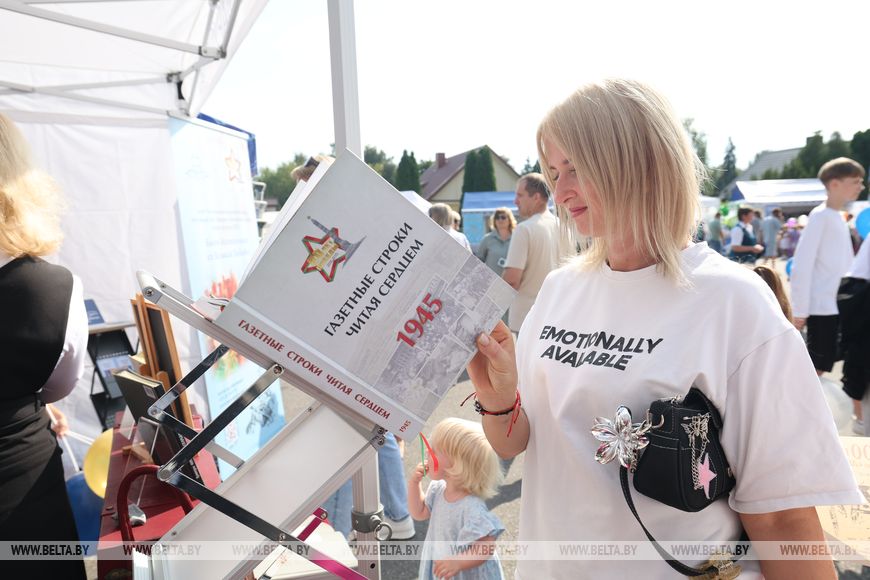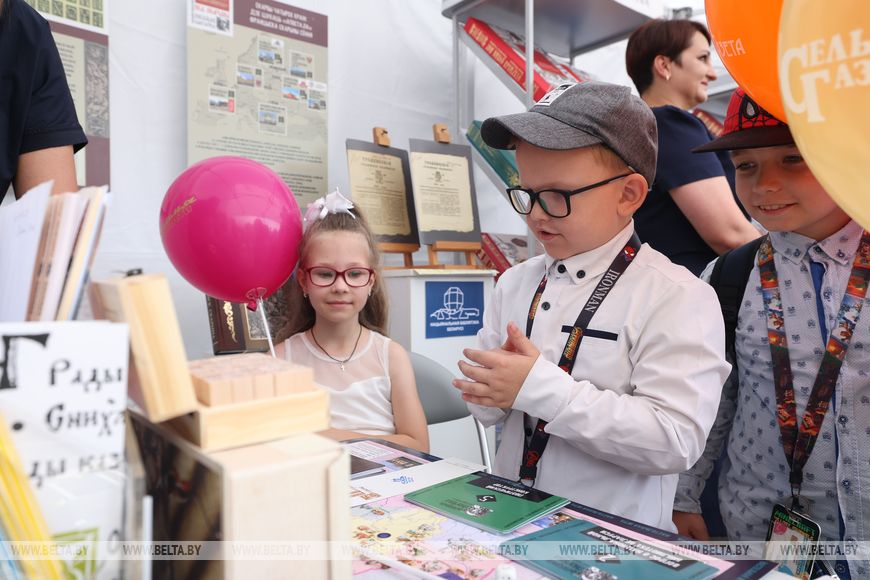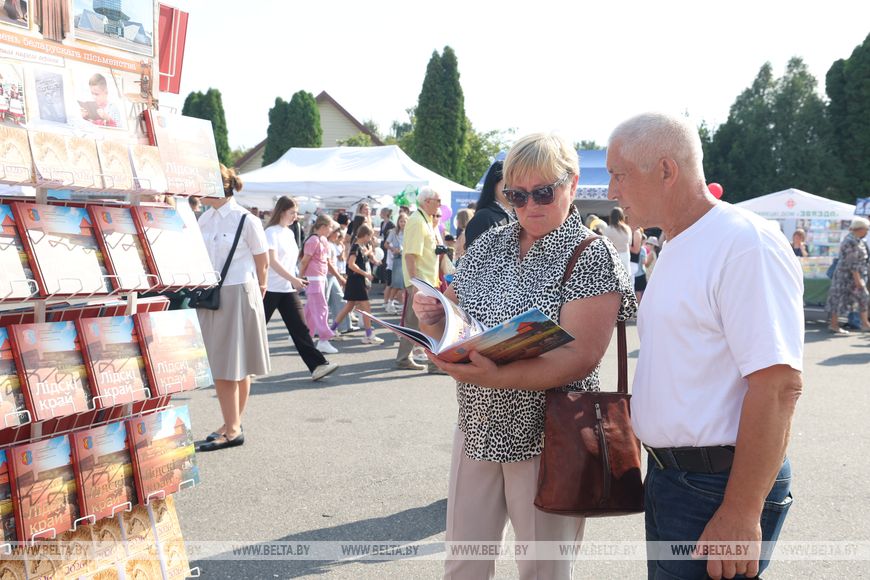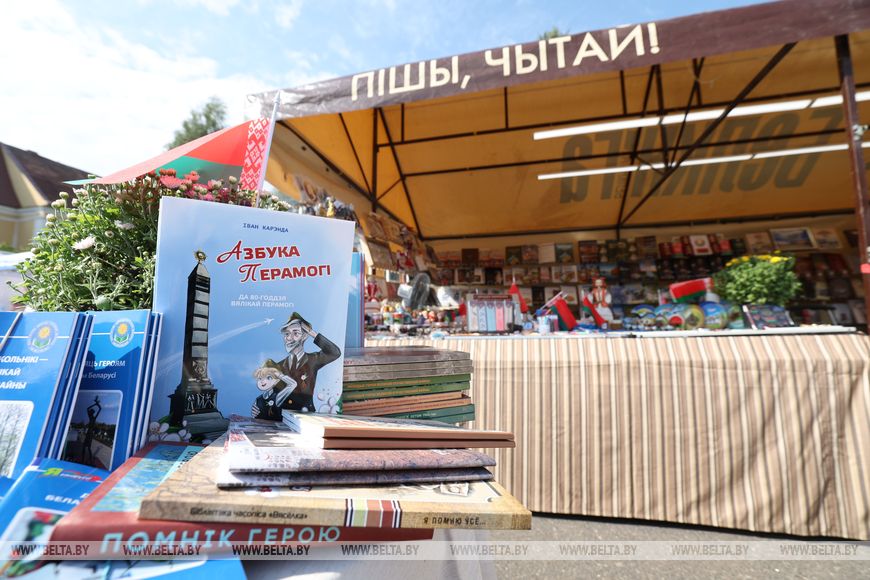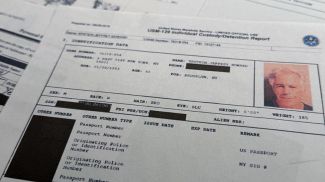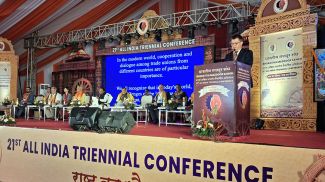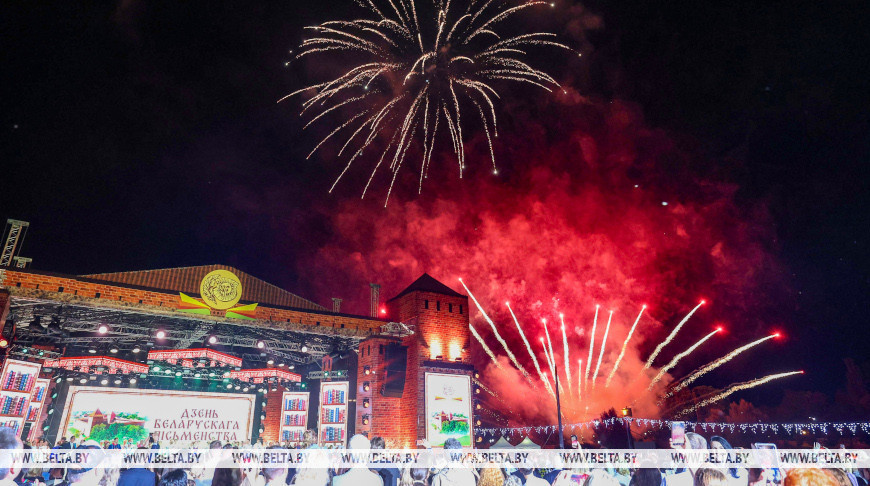
MINSK, 6 September (BelTA) – Lida is playing host to the 32nd Day of Belarusian Written Language. The festival will wrap up on 7 September. This year, the event is dedicated to several topics: the 80th anniversary of Victory in the Great Patriotic War, the Year of Improvement in Belarus, and the 500th anniversary of the publication of The Apostle by Francysk Skaryna, BelTA has learned.
Belarusian Written Language Day has been held for many years in various towns across Belarus. The main mission of the festival is to celebrate and promote national culture and literature. The festival is usually hosted by towns known for their rich historical and cultural heritage. The tradition of celebrating Belarusian Written Language Day was started in 1994, when the Day of Belarusian Literature and Printing was held for the first time in Polotsk on 28 August. On 26 March 1998, Belarus' President Decree No. 157 “On State Holidays, Public Holidays and Memorable Dates in the Republic of Belarus” was passed. It provided for holding Belarusian Written Language Day every year on the first Sunday of September. Since then, the festival has been gaining momentum and receiving support at the highest level.
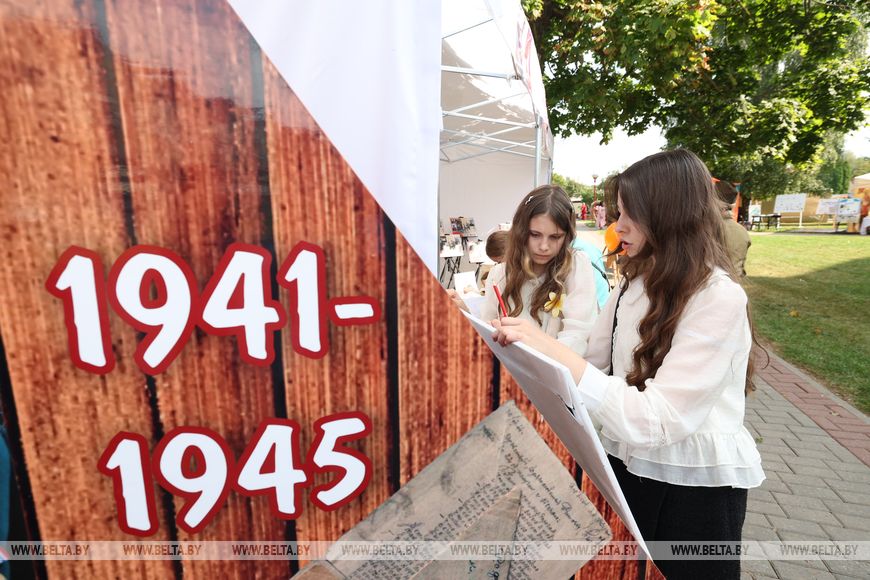
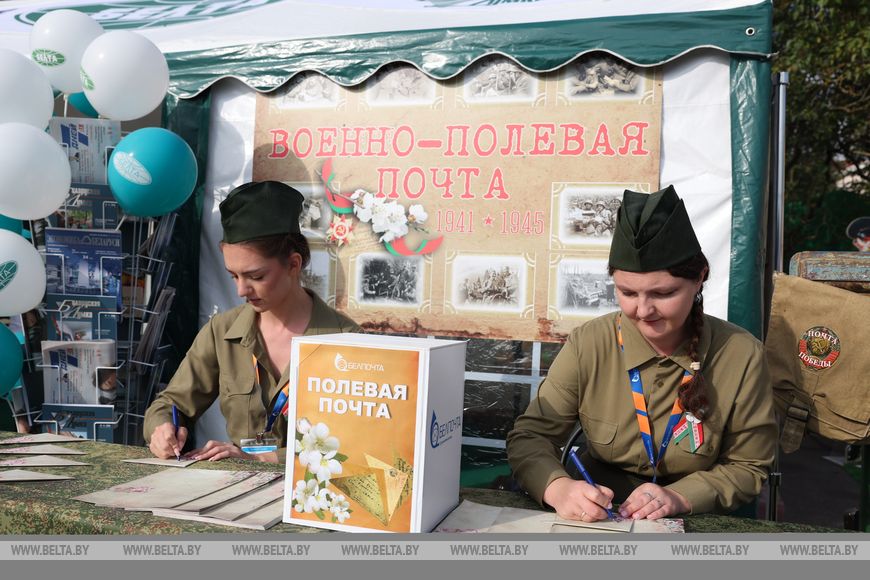
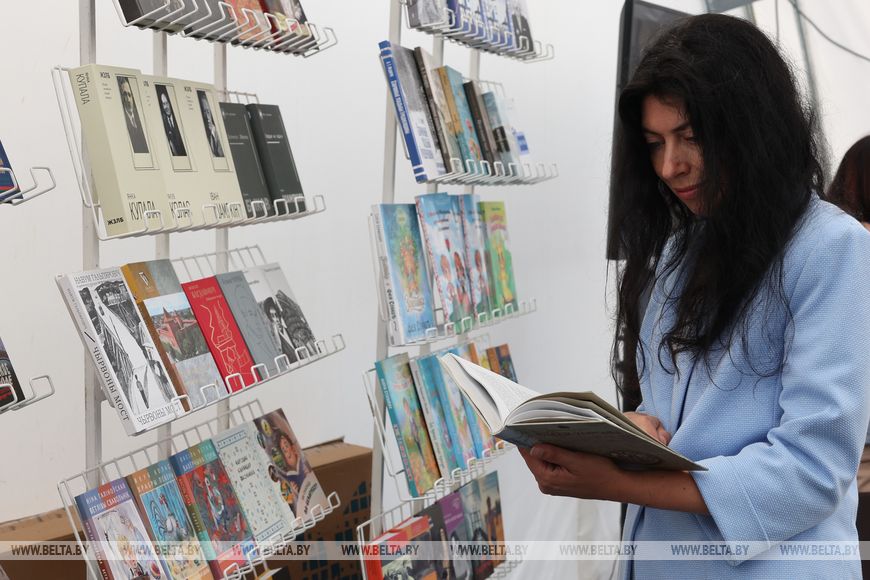
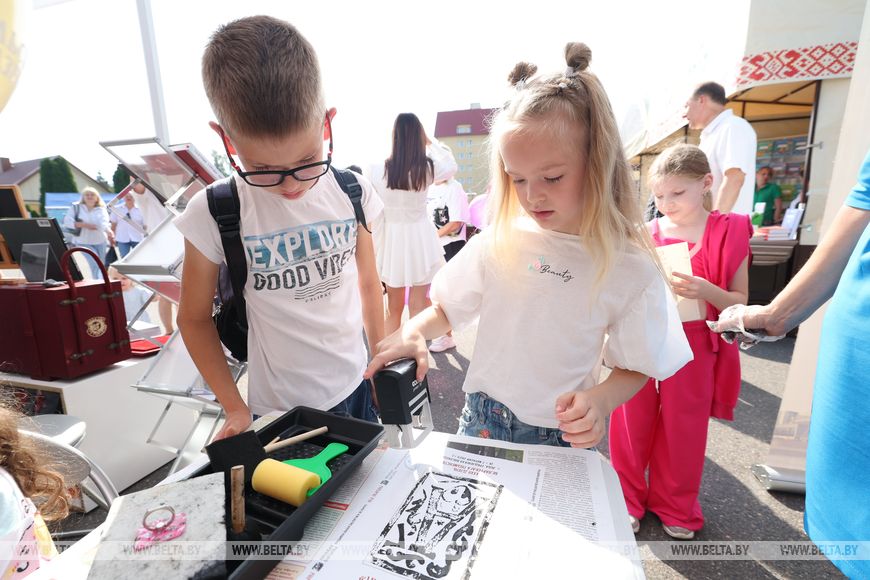
In previous years the festival was hosted by Polotsk, Turov, Novogrudok, Nesvizh, Orsha, Pinsk, Zaslavl, Mstislavl, Mir, Kamenets, Postavy, Shklov, Borisov, Smorgon, Khoiniki, Gantsevichi, Glubokoye, Bykhov, Shchuchin, Rogachev, Ivanovo, Slonim, Belynichi, Kopyl, Dobrush, Gorodok, and Ivatsevichi.
All the towns hosting Belarusian Written Language Day are spruced up in the run-up to the festival. Buildings are repaired and renovated, streets and squares are embellished, new residential houses, social and cultural facilities are inaugurated, new monuments are unveiled. Participants and guests of the festival have the opportunity to attend book presentations, meet with Belarusian and foreign writers, journalists, publishers, listen to performances by poets and writers, and artistic groups.
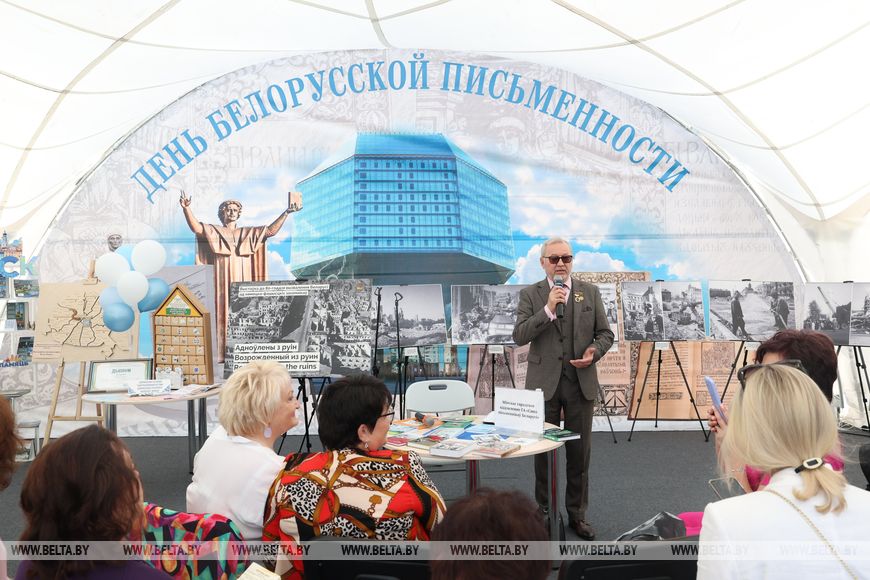
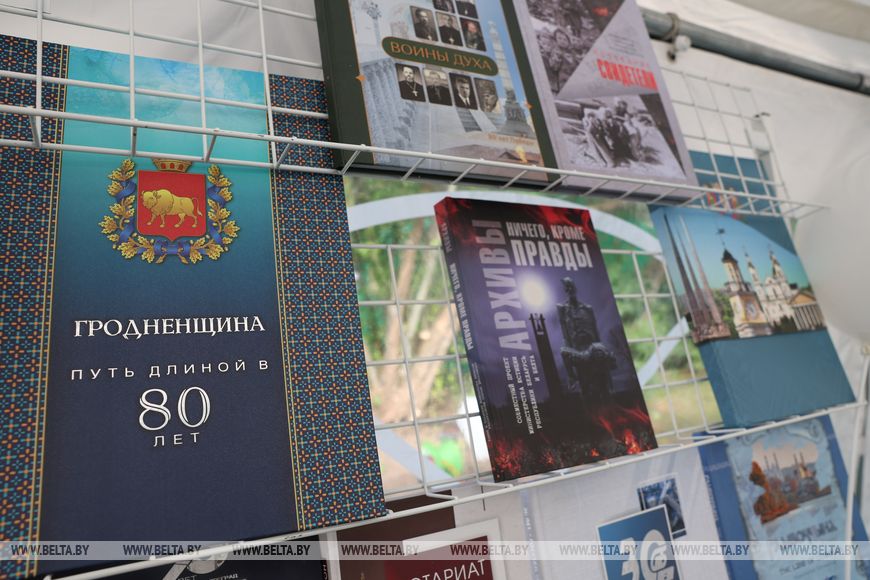
This year, Lida (Grodno Oblast) was selected as the venue for Belarusian Written Language Day. Founded in 1323, it was named after the Lideya River. On its banks, the famous Lida Castle was built, becoming one of the most important defensive structures of its time.
In 1590, Lida was granted Magdeburg rights and a city coat of arms. In the centuries that followed, the city served as an administrative, judicial, and commercial center of a district and county. From 1759 to 1834, it was home to a secondary educational institution, the Piarist College, whose graduates left a notable mark in science and literature. From the second half of the 19th century, industry began to develop intensively, aided by the construction of a railway. The city saw the emergence of iron foundries, machine‑building and sawmilling enterprises, pasta and confectionery factories, as well as numerous shops, restaurants, and hotels. Lida acquired its modern appearance in the 1960s-1980s.
Lida has also produced many talented individuals. Among those born here are academician Arkady Migdal, literary historian Piotr Kogan, composer Konstantin Gorsky, and athlete Valery Tsilent.
Today, Lida is a modern cultural center of Grodno Oblast. The city has more than 300 streets and lanes and a population of over 100,000. It is home to 25 major industrial enterprises. In addition to schools, there is a gymnasium, a lyceum, and four colleges.
In the run-up to the Day of Belarusian Written Language, Lida renovated its library, opened a refurbished bookstore, improved the grounds around Lida Castle, and developed a new tourist route. To mark the occasion, an art installation titled Verabeyki [Sparrows] by Lida sculptor Richard Grusha was unveiled. The work is an intriguing architectural piece inspired by a poem by a poem of Belarusian Soviet poet Valentin Tavlai.
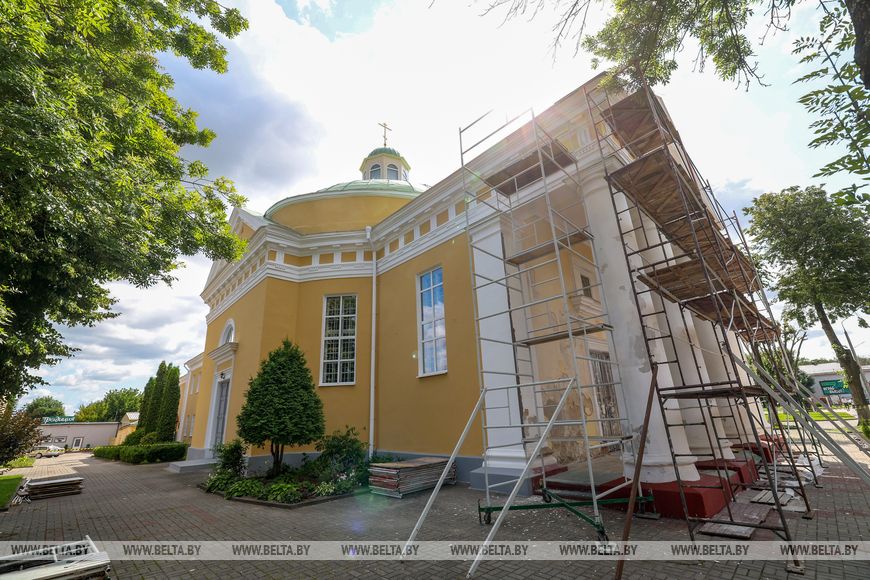
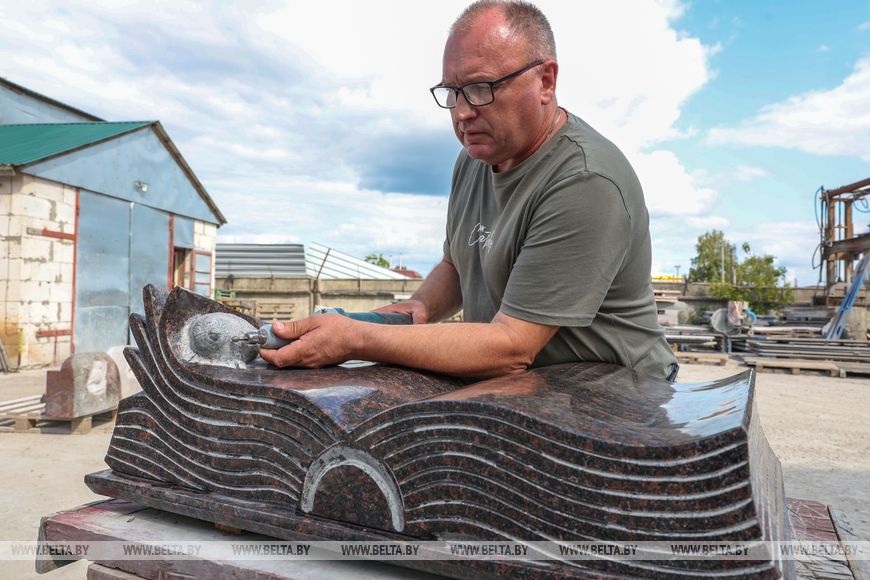
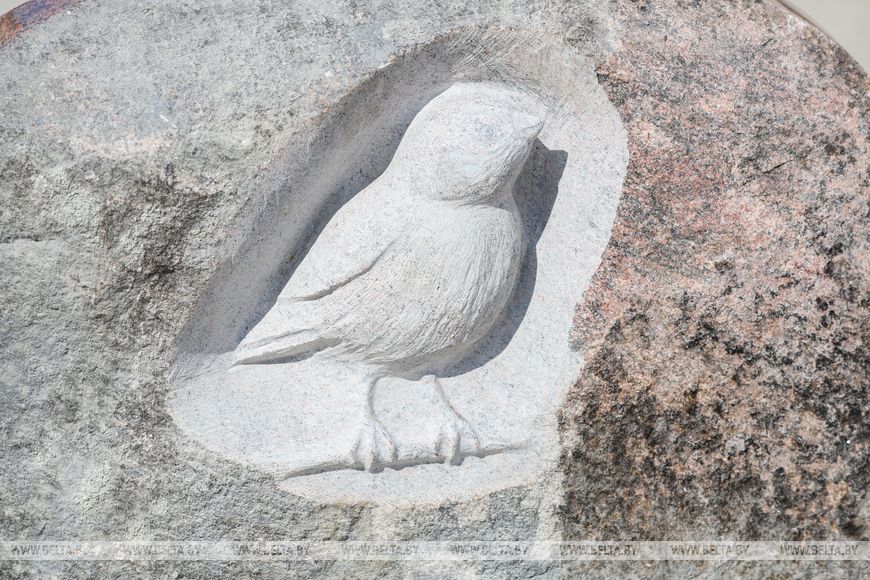
Guests of the festival can look forward to a rich and varied program. On 6 September, the Lida Historical and Art Museum will host the scientific and practical conference Lidskiya Chytanni, traditionally held in cooperation with the National Academy of Sciences of Belarus. Festival venues will be active from 10:00 to 20:00 on 6 September and from 10:00 to 16:00 on 7 September, offering a variety of events, interactive activities, meetings with writers, games, and workshops.
On Metropolitan Filaret Street, the Book and Press Festival will take place. This year, special attention will be given to the country’s regions. Each region will present its literary potential as well as new book releases. Delegations from regional writers’ unions will visit the city. Literature lovers will have the opportunity to meet publicists and take part in autograph sessions.
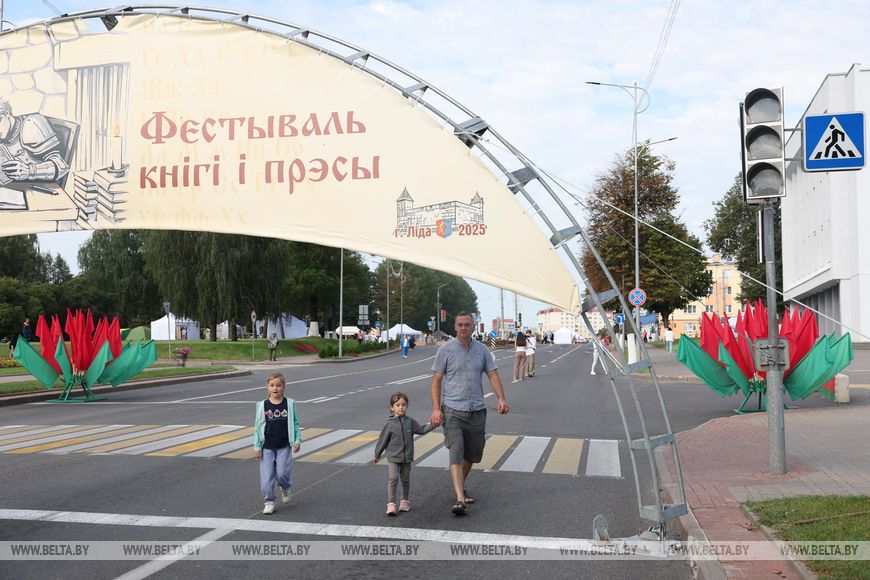
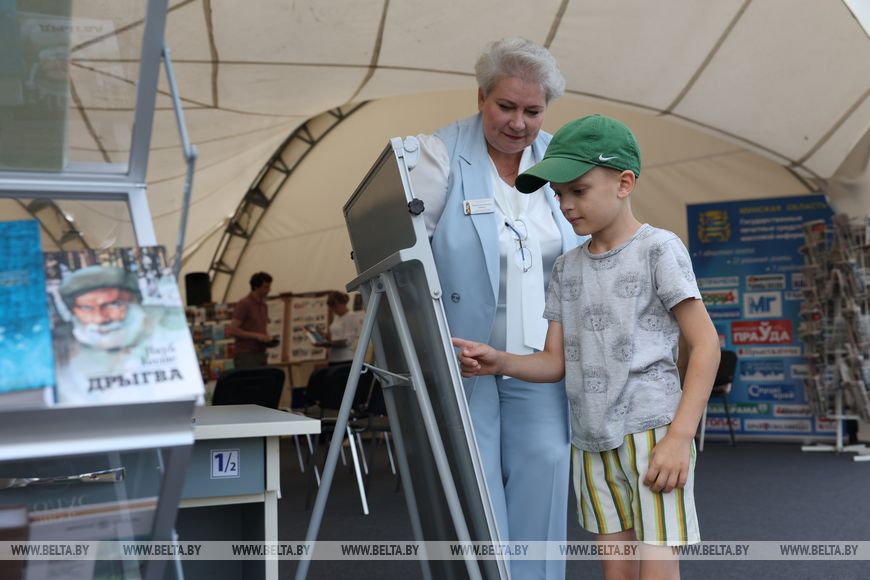
On Zamkovaya Street, the Lida District tourist area will present a new route specially developed for the holiday - Places of Power in Lida District. The same street will also welcome sports and active lifestyle enthusiasts with the interactive zone Books and Sport – Moving Forward!.
Museums and libraries will showcase educational and interactive exhibits along Sovetskaya Street. Educational institutions’ zones, an art quarter, and a crafts town with workshops will open on Leninskaya Street.
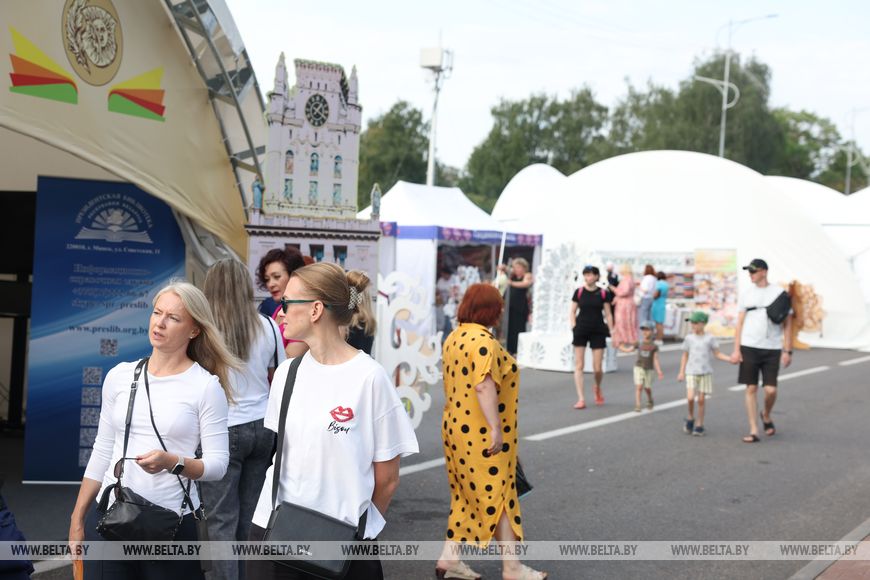
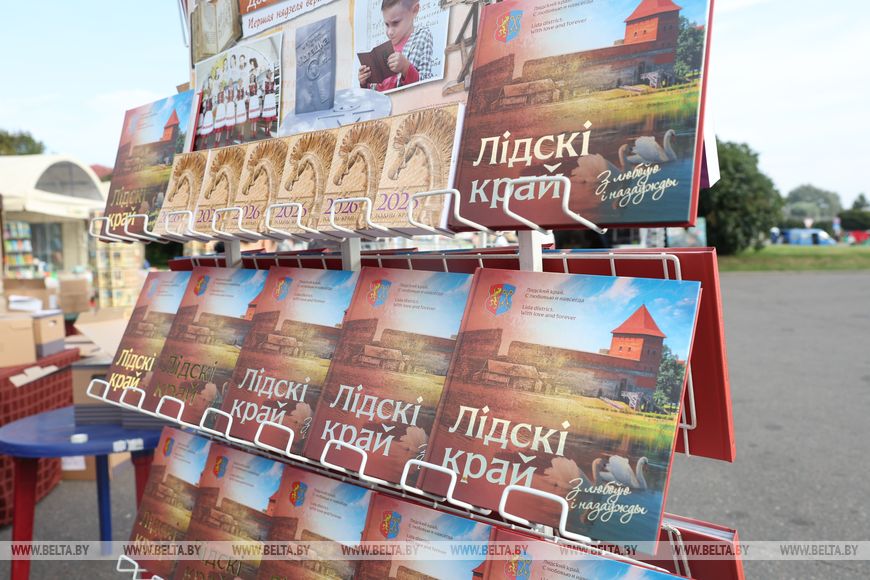
Lida Castle will host a Day of Medieval Culture. On 7 September, an animation program titled Through the Prism of Time is set to be held here.
The Lida Art Museum will open its doors to visitors, presenting the exhibition War Looks Through the Pages of Books from its collection dedicated to the 80th anniversary of the Great Victory.
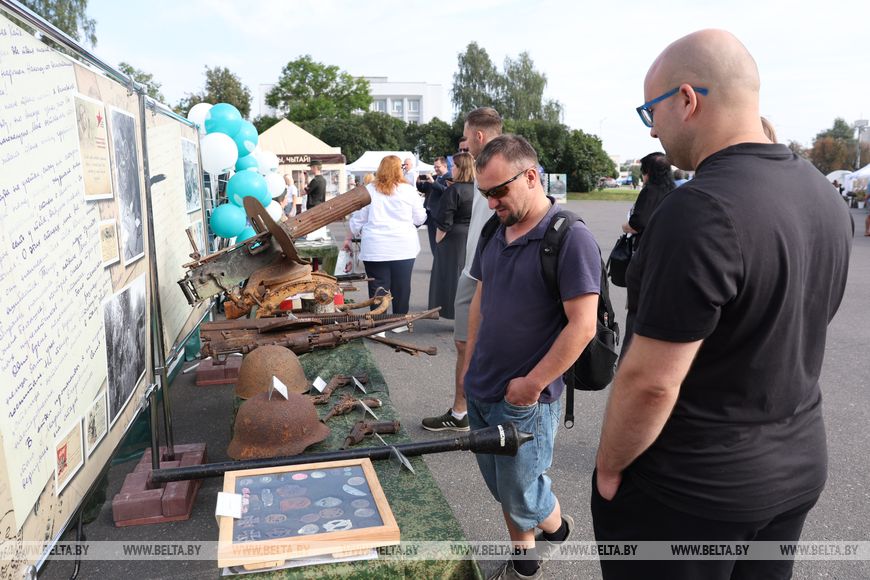
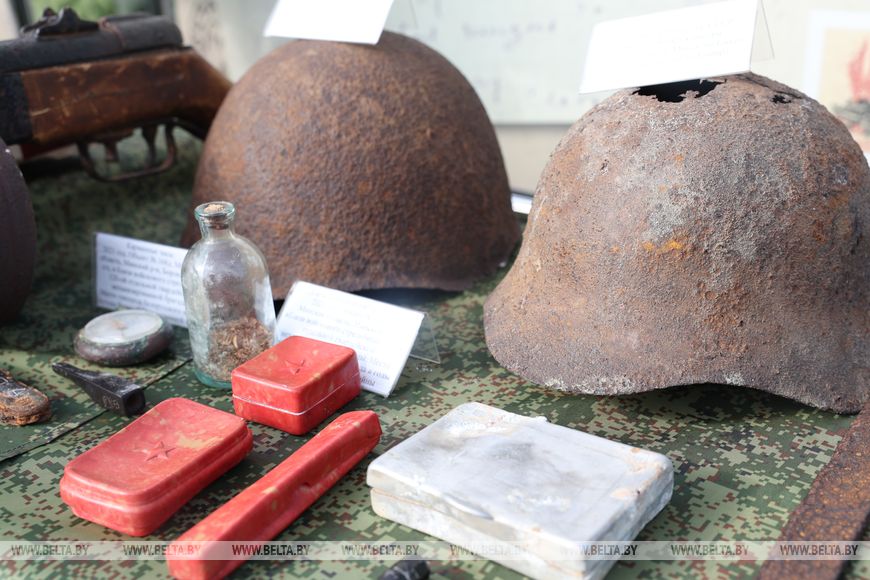
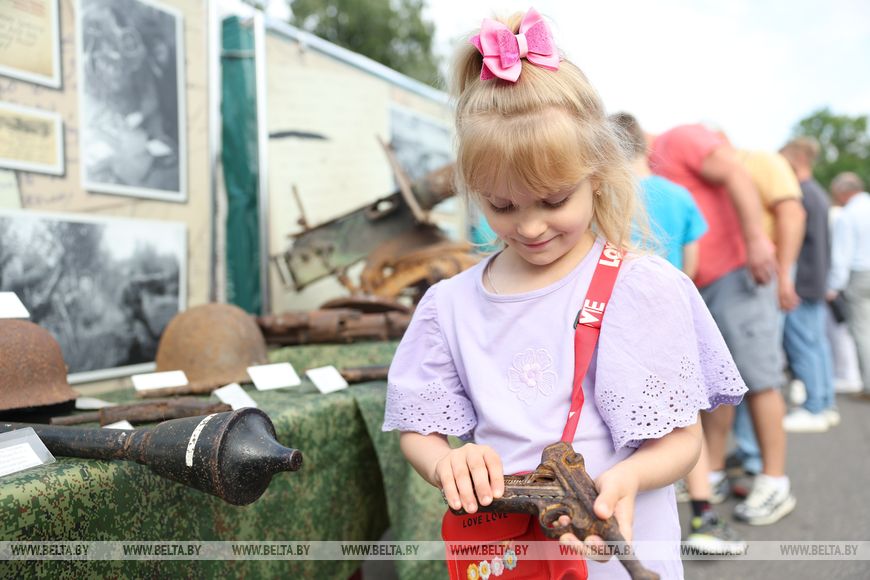
Residents and guests of the city will also enjoy a vibrant concert program. The cultural talent marathon Lida Glorifies the Language and Welcomes All Guests! will take place near the monument to Gediminas on 6 September. Choral singing will fill Lida for two days. The second stage, located on Sovetskaya Street, will host the Lida Choir Fest.
At 20:00, the main stage near the Palace of Culture will feature the official opening ceremony of the Day of Belarusian Written Language. The event will take the form of a theatrical performance designed as a historical journey through the prism of Lida’s heritage. The program will include not only recitations of Belarusian poetry but also songs based on these works, featuring both classic and contemporary Belarusian authors.
The first day will conclude with a fireworks display at 22:00.
On 7 September, the results of the poetry contest about Lida Castle, Voice of the Centuries, will be announced, and the winners of the competition Praise to the Hands that Smell of Bread will be awarded on the city’s main stage.
The closing ceremony, scheduled for 14:00, will feature songs by young performers set to the words of Belarusian writers.
Lida is ready to welcome guests with a wealth of diverse events, abundant music, and creativity. These days will be memorable not only for the city’s residents but for all its visitors, with something to suit every taste.
